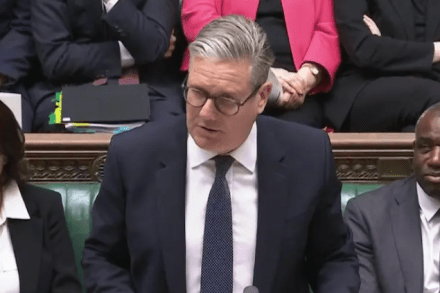What James Cleverly gets wrong about net zero
The Conservatives were nearly wiped out at last July’s general election, and the party is currently trailing Nigel Farage’s Reform in the polls. You might think then that the handful of remaining ‘big beasts’ on the Tory benches would decide to try and work together. Instead, a split appears to be emerging in the party over net zero. James Cleverly took a thinly-veiled swipe at Kemi Badenoch’s green policy in a speech to the Conservative Environment Network (CEN) last night. In one of her first major policy interventions as leader, Badenoch abandoned the Conservatives’ support for the country reaching net zero emissions by 2050. But Cleverly has now argued that the party should




















